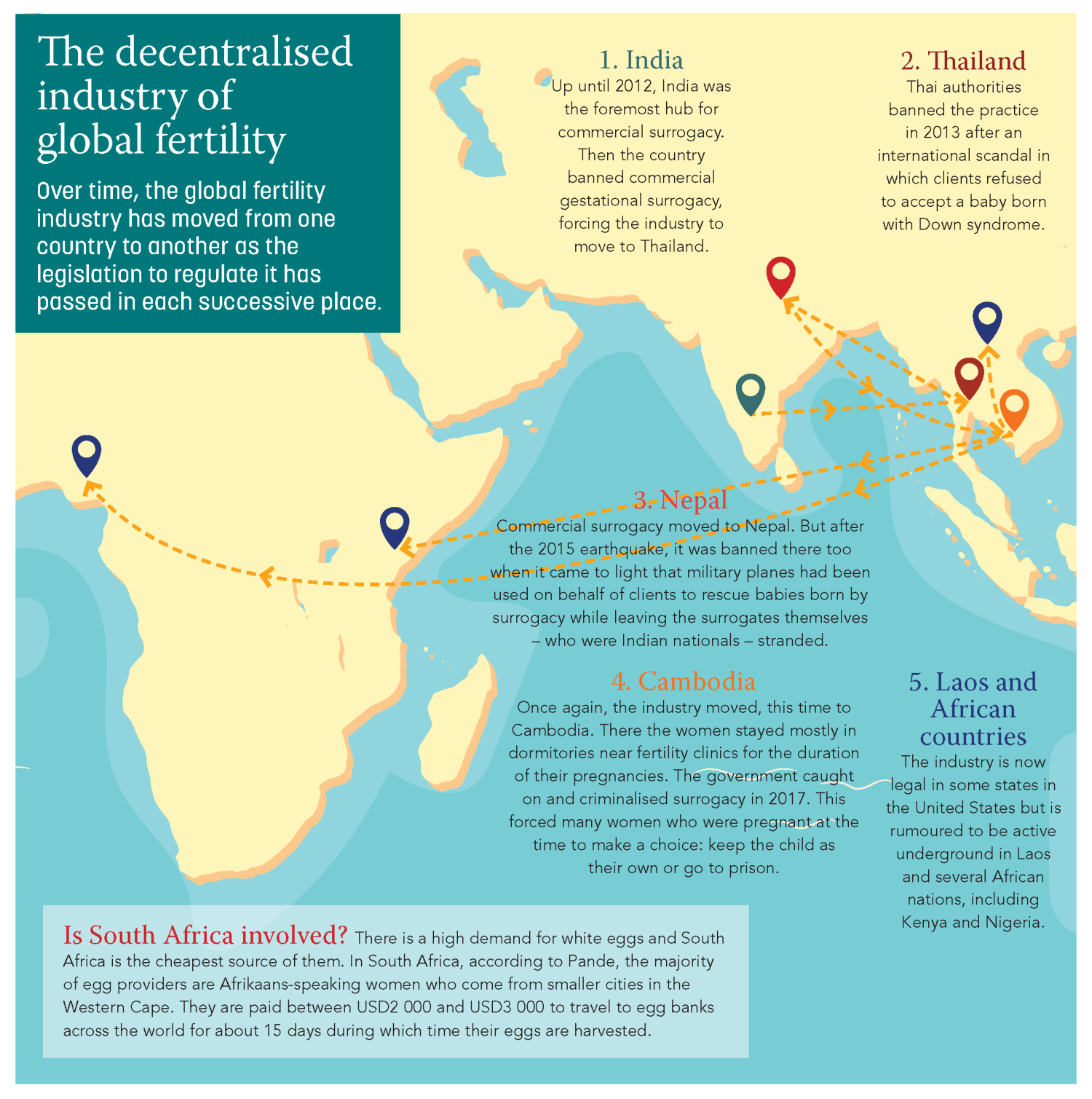[Original Post from UCT, see the link]
Flows in the global fertility market
What does the global fertility industry reproduce – apart from babies? Associate Professor Amrita Pande, a sociologist and feminist ethnographer at the University of Cape Town (UCT), seeks to answer this central question through her research on the global fertility market.
Human reproduction no longer relies solely on natural conception. The scientific advances that make this possible combined with ad hoc national legislation and the desires of couples struggling to conceive has created an international trade in fertility. This global industry is what Pande studies.
“The global fertility trade can include anything that goes into the making of a baby,” she explains. “The industry now occurs in many countries and involves multiple kinds of reproductive actors or labourers, including egg providers, surrogates, brokers, doctors and prospective parents.
“In these cases, you can travel to an egg bank in New Delhi to be matched with an egg donor who comes from Ukraine, South Africa or another country.”
“It’s an industry that has flourished against a legislative backdrop outlawing many of these activities.”
To illustrate how these processes might occur, Pande describes a common scenario. “These days, when you want to make a baby using assistive fertility technologies you can – if you are a very rich, heterosexual couple – do this in a place like California, where commercial surrogacy is legal. But, if you are a single father, a gay or lesbian couple, or if you want a ‘designer baby’ of a specific race, it gets complicated.
“In these cases, you can travel to an egg bank in New Delhi to be matched with an egg donor who comes from Ukraine, South Africa or another country. Your sperm will be used to fertilise this egg.
“The embryo will be flown to Laos where it will be inserted into a woman from Mexico, Cambodia or Thailand. The woman will live in a dormitory next to the fertility clinic for the duration of the pregnancy. When she gives birth, you will take the child and return to your home country.”
This, says Pande, is one global fertility flow – the subject of her current research on the industry.


